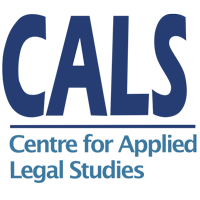Our History
CALS is one of South Africa's oldest public interest law organisations. It was founded by Prof. John Dugard and based at Wits University during the apartheid era when human rights groups simply did not exist. With three original staff members and funding from the Ford Foundation, the Carnegie Corporation and the Rockefeller Brothers Fund, the organisation made a significant impact first as an applied research centre and later as a law clinic.


